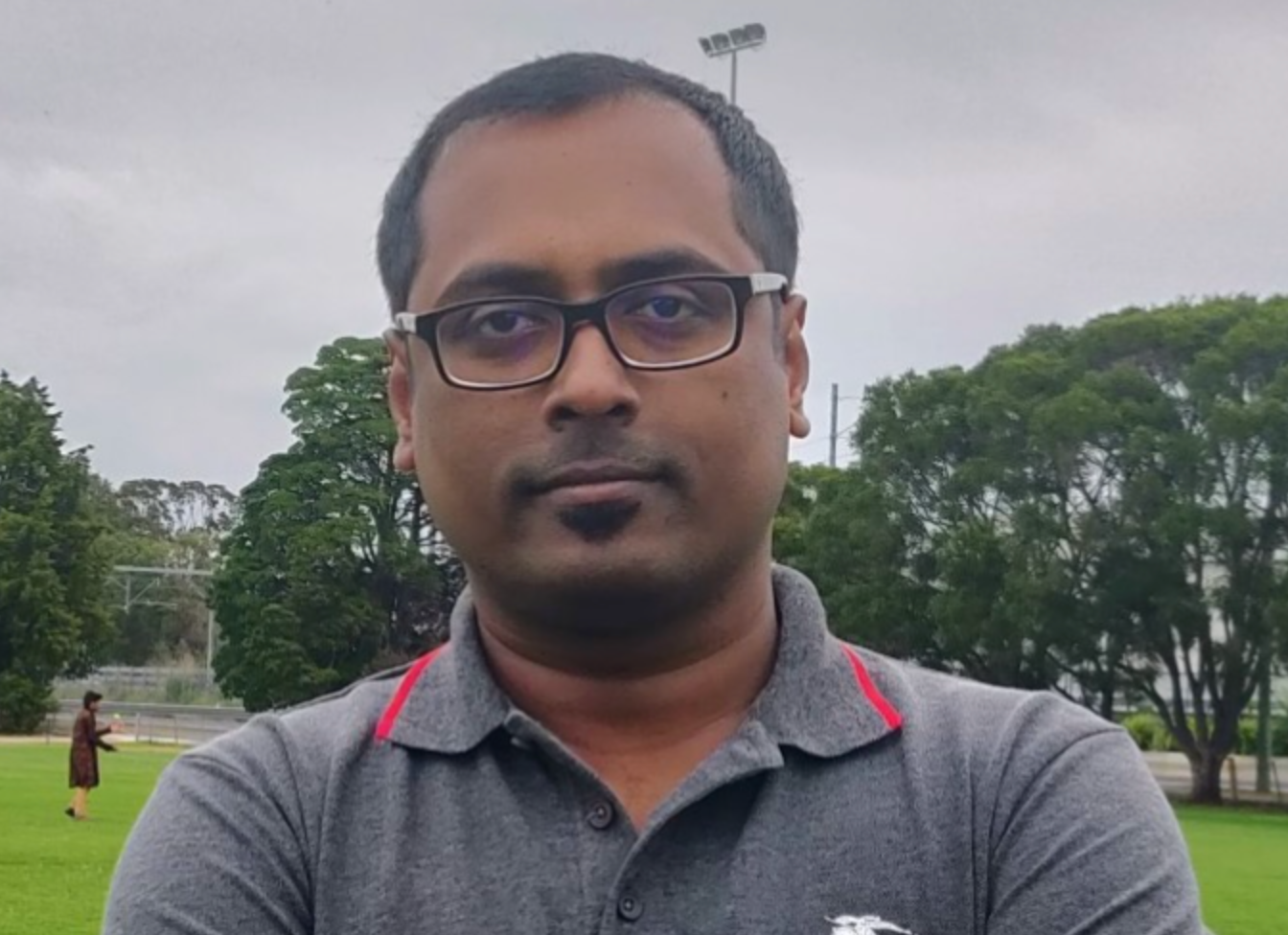In September 2018, Bangladesh-based researcher and graduate of Khulna University Ripan Debnath enrolled at the University of New South Wales Sydney (UNSW) as a PhD student.
Ripan joined a group of researchers at UNSW’s City Futures Research Centre (CFRC), part of the university’s School of Built Environment, and worked under the guidance of Professor Hoon Han in a number of FFS-CRC backed projects. Prof Han’s research focuses primarily on urban AI, smart cities and real estate, using machine learning, spatial modelling and multivariate data analysis.
Ripan’s PhD thesis was supervised by Professor Chris Pettit, CFRC Director and inaugural professor of Urban Science at UNSW, with expertise is in the convergence of the fields of city planning and digital technologies including Geographical Information Sciences (GIS).
The thesis, titled ‘An integrated computational and collaborative approach for city resilience planning’, aims to enhance resilience planning practices through the development and evaluation of an integrated data-driven computational and collaborative scenario planning approach in the context of Greater Sydney, Australia.
“The research investigates the utility of data-driven models in supporting collaborative scenario planning to help mitigate ever-intensifying climate=change-related risks, such as bushfires, floods and urban heat,” Ripan explains.
During his doctoral studies at UNSW, Ripan contributed to a succession of Future Food Systems-backed projects that involved UNSW data-mapping experts and local government bodies interested in boosting revenue and jobs in their regions through creating conditions conducive to agrifood-sector expansion.
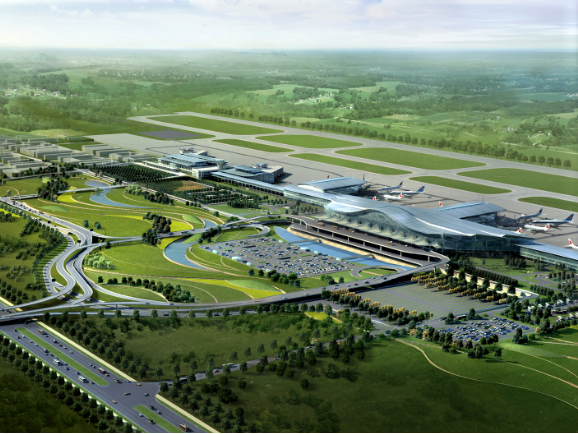
Artist’s impression of the soon-to-be-built Western Sydney International Airport’s ‘Aerotropolis’, seen from above. Credit: Liverpool City Council
Developing a database of agrifood stakeholders in Western Sydney
In 2021, Ripan worked on the ‘Western Sydney agrifood mapping and analytics’ project, assisting UNSW School of Built Environment’s Dr Ahmed Hammad in collecting data, canvassing agrifood system stakeholders and mapping farms, food factories, food retailers and ancillary businesses in the Liverpool LGA.
The database they developed for project partner Liverpool City Council aimed to help planners envision future scenarios for the local food industry, including how it might work in tandem with the major intermodal distribution hub in Moorebank, within Liverpool LGA, and into the agribusiness hub that will form part of the Aerotropolis to be developed alongside the new curfew-free international airport planned for Western Sydney.
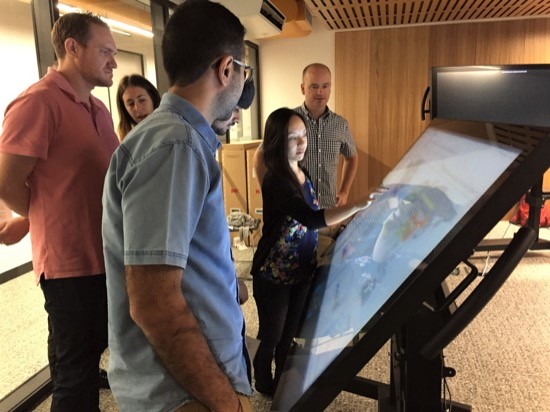
Ripan (front and centre) in UNSW’s City Analytics Lab, examining data-driven maps. Ripan was part of the UNSW-based research team for the ‘Western Sydney agrifood mapping and analytics’ project. Credit: UNSW
Mapping agribusiness land-use in NSW’s Namoi region
In March 2022, Ripan was appointed Research Assistant to AI and data-mapping expert Professor Hoon Han on the ‘Namoi agribusiness planning’ project, an FFS-backed collaboration between UNSW and Namoi Unlimited, a group of regional councils in one of New South Wales’ richest agricultural areas.
The project entailed using data from various sources to create land-use suitability maps for different agricultural production types in the Namoi region. The resulting maps detailed the locations of existing agribusinesses – poultry, ruminant livestock and horticulture; and associated infrastructure (roads, railway lines, energy generation, water supply, primary produce processing and storage facilities). The team then assigned weights to criteria deemed relevant to these agribusinesses to develop a multi-criteria decision-making tool (MCDM). This tool was refined through feedback from local stakeholders gleaned through interviews and co-design workshops held at the Tamworth Regional Council headquarters.
The resultant tool and its linked data were adopted by the regional organisation to put into practice.
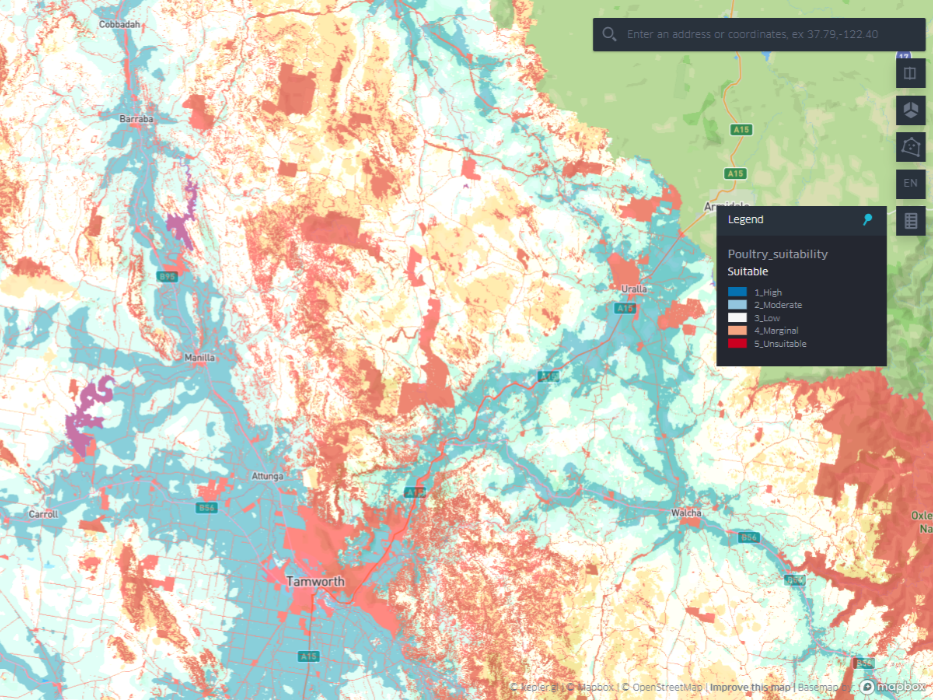
Map detailing land use in NSW’s Namoi region. Credit Hoon Han, UNSW City Futures Research Centre
Modelling future freight needs in the Namoi
As a follow-up to the Namoi agribusiness planning project, Ripan led a short-term project for Namoi Unlimited modelling agribusiness freight needs in the region, supported by Future Food Systems.
The aim of the ‘Exploring freight demand and network accessibility in the Namoi region’ project is to visualise future freight demands (in kilotonnes) for agricultural commodities originating from the Namoi region.
The demand model is based on actual projections made by Transport for NSW at the SA3-level, which is set to downscale to yield estimations at the LGA level.
“I am using a linear proportional estimation based on available total production data for such commodities from ABS/DPI,” Ripan says. “I then conduct a connectivity analysis of the four LGAs within the Namoi region in relation to the NSW Oversize/ Overmass/ Heavy Vehicles Network guidelines and routes.
“Frequently, in rural areas of Australia such as the Namoi, farms are located far from processing facilities and distribution hubs, necessitating higher transport costs (and, for some commodities, refrigerated trucks) and increasing the likelihood of food loss.
“This analysis will provide valuable insights into the accessibility of LGAs in the Namoi region for Multi-State Class 1 Load Carrying Vehicles and Heavy Vehicles. It gives Namoi Unlimited a clearer understanding of existing infrastructure gaps that hinder connectivity and freight movements.”
Ripan hopes that his modelling will help to guide infrastructure planners in the Namoi region, and assist local agribusinesses in transporting their produce to market via the most efficient routes.
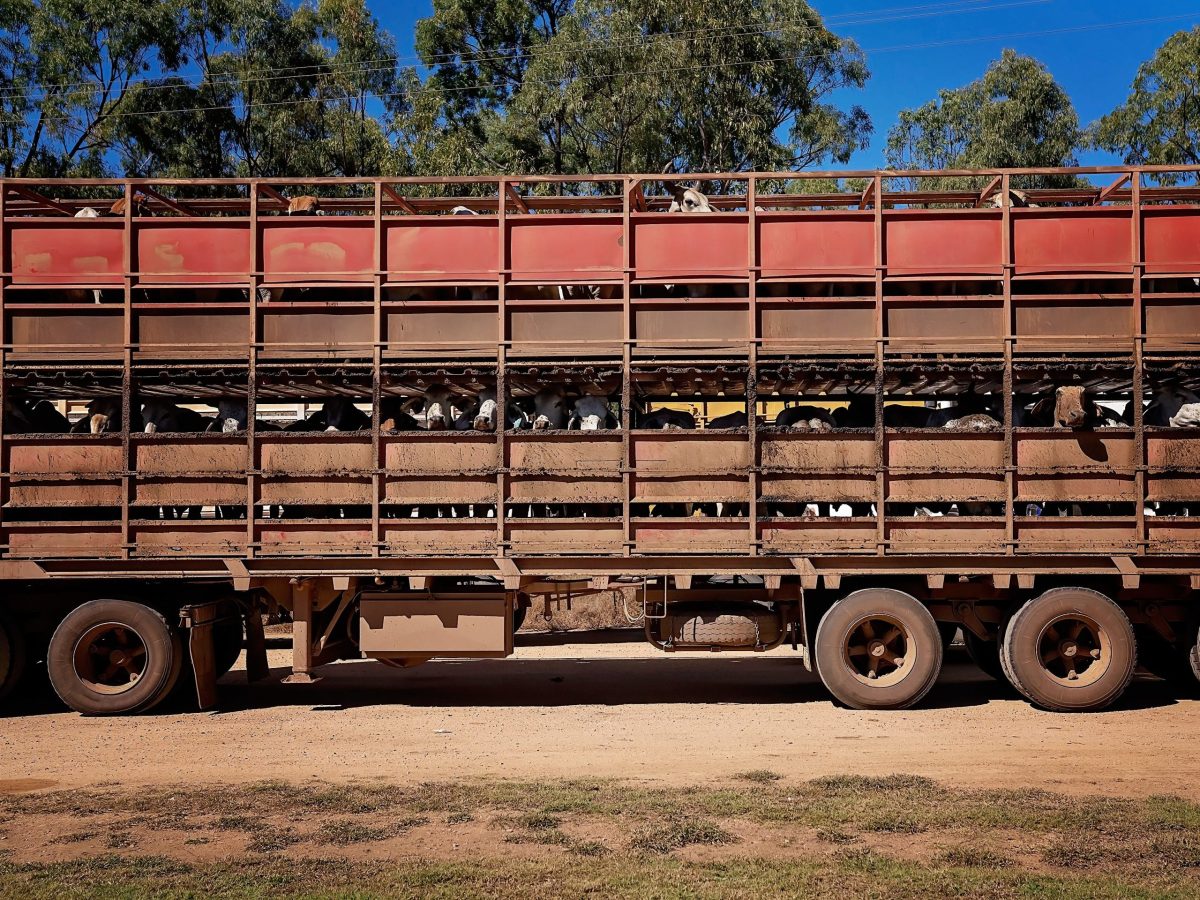
Road train transporting cattle to market Credit: Shutterstock
Ripan’s doctoral thesis was submitted for examination in spring of 2023 and was approved with minor edits. His work received ‘excellent and above’ grades for all assessment criteria from both examiners.
immediately upon graduation, Ripan was employed by the University of Newcastle’s Institute for Regional Futures as a Consultant.
We congratulate Ripan on taking out his PhD and look forward to updates on his career.
Lead image: Dr Ripan Debnath, recent PhD graduate from UNSW, has now been appointed a Consultant to the University of Newcastle’s Institute for Regional Futures. Image courtesy of Ripan Debnath


